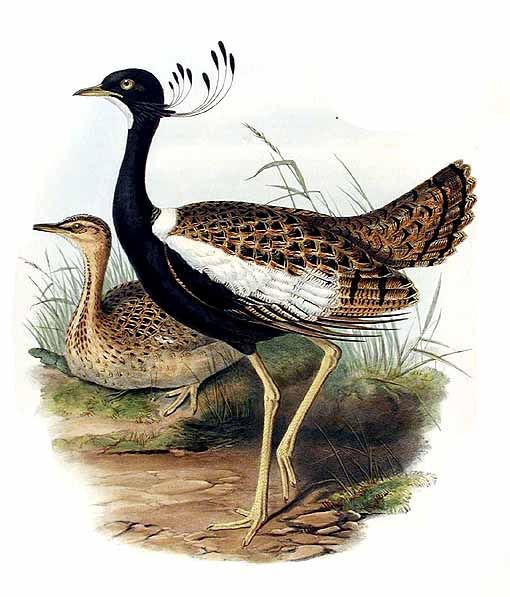Facts About Lesser florican
The lesser florican, also known as the likh or kharmore, is a small and exquisite bird native to the Indian Subcontinent. It is the sole member of the genus Sypheotides and is renowned for its dramatic leaping displays during the monsoon season. The male lesser florican boasts striking black and white plumage with long, elegant plumes on its head during the breeding season. Unfortunately, this beautiful bird is endangered due to hunting and habitat destruction, and it has even disappeared from some regions, such as Pakistan.
During the breeding season, males are remarkably eye-catching with their black heads and necks contrasted by white throats. In contrast, females and non-breeding males are more camouflaged with buff-colored plumage and black streaks. Interestingly, females are larger than males, which is somewhat unusual compared to many other bird species. Although the genus name Sypheotides suggests inclusion of other species, it is important to note that the Bengal florican belongs to a different genus, Houbaropsis, with both species sharing some similar traits.
Historically, the lesser florican was prevalent throughout India, but now it is mostly found in central and western parts of the country. These birds thrive in grasslands but can also adapt to crop fields. Typically, they are seen alone or in pairs. Their diet is varied, including small vertebrates, invertebrates, and plants.
The breeding season is when the males truly stand out, performing impressive leaps and calls to attract females. Females have their own unique behaviors to protect their nests. They breed in a dispersed lek system, where males establish territories to woo potential mates. Once the eggs are laid, the female takes on the sole responsibility of incubating them and raising the chicks. The incubation period lasts about 21 days.
Sadly, the lesser florican faces significant threats from hunting and habitat loss. Conservation efforts are crucial to ensure that this unique and captivating bird does not vanish from our world.

 Afghanistan
Afghanistan